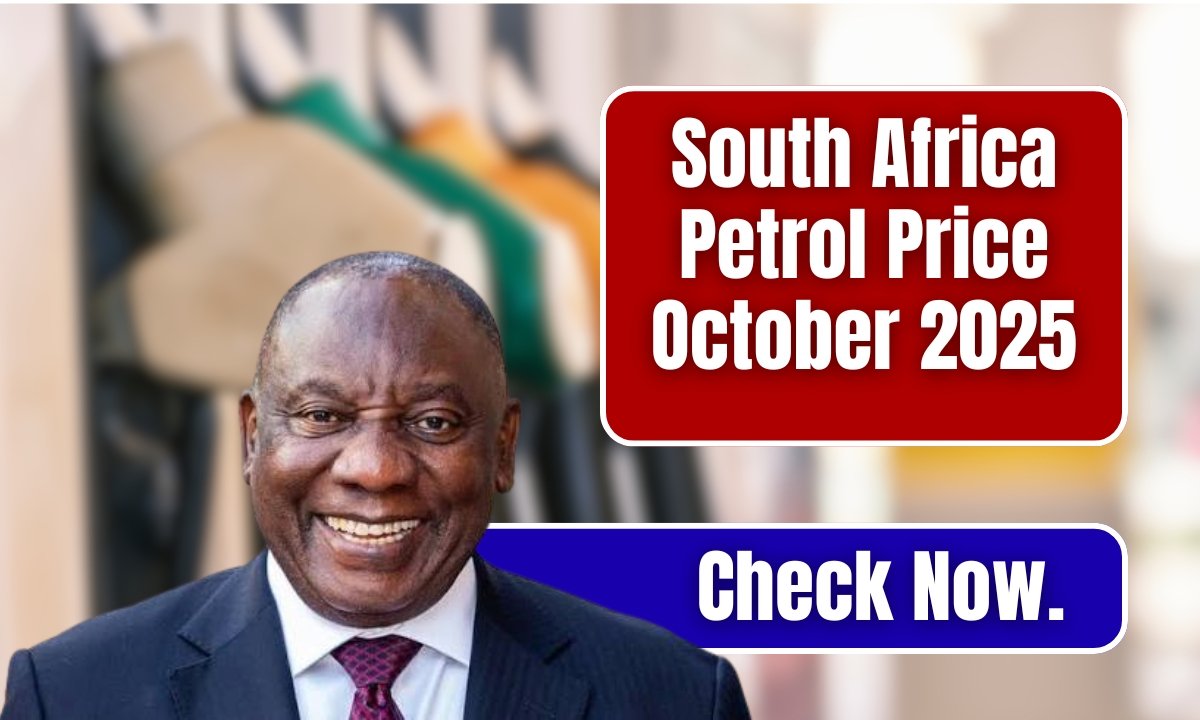Fuel and petrol prices may see a revision in October 2025 down in South Africa. The Department of Energy and Fuel Pricing Committees usually undertake price scrutiny on a monthly basis; however, the October update is set to mirror changes in the global oil markets, exchange rate, and even local tax alterations. Many motorists and operators of transport will be keenly observing how much prices may go up or down.
Key Factors Driving the Change
Usually, a bunch of things drive South African petrol prices:
- Global Oil Prices: International prices change according to supply of crude oil, OPEC decisions, and geopolitical tensions.
- Exchange Rate: Because India and South Africa import most of their refined fuels, how much its local currency stands relative to the US dollar largely determines its costs. If the rand is weak, imported fuel will be expensive.
- Taxes & Levies: Fuel taxes, infrastructure levies, environmental fees, etc., are the ones that may change every month to either be added to or subtracted from prices at the pump.
- Local Refinery and Supply Chain Costs: Operational, maintenance, and logistical constraints also add to costs at the refineries or in distribution networks.
The relationship between these factors can push petrol prices either upwards or lower on a razor-thin difference, corresponding to the actual dynamics of the month.
Estimated Increase & Range
According to past tendencies and initial speculation, certain analysts expect the petrol prices to go up anywhere between R1.50-R2.50 per litre or so, depending on the grade (Petrol 93 and Petrol 95). Diesel sees a lesser increment. However, should global oil traipse lower or tax cuts are brought into force, a small drop would be possible-or at best muted rise-tied down with the government’s reaction.
Impact on Consumers & Sectors
If petrol prices rise, then the effects are shared across different sectors:
- Households: Such families will have to spend a larger share of their monthly budget on transportation and fuel, leaving less for groceries and other essential commodities.
- Transport and Logistics: Transport operators including truckers, delivery services, and public transport would pass down an increase in operational costs to the customers.
- Agriculture and Food-Prices: Fuel is a chief input; an increase in price would raise the cost of food distribution and farming operations.
- Small Businesses: Especially those relying on delivery or mobile services could suffer.
When the New Prices May Take Effect
Changes in petrol prices in South Africa normally take effect from the first Wednesday of the new month (thus most probably in early October this time). Retailers should therefore have adjusted their pump prices around this time. Consumers should thereafter see these revised prices on their fuel receipts when filling up at any service station.
Tips for Motorists Ahead of the Change
- Fill your car as early as possible if you expect an increase of any magnitude.
- Follow fuel-related announcements and verify them against trusted sources, such as the Department of Energy.
- Look for alternatives to using your own vehicle: such as carpooling and public transport, or reduced driving altogether.
- Keep an eye on pump prices and compare prices across various stations in your area.
Also Read: SASSA R700 Grant 2025: Eligibility, Application Steps & Payment Schedule
